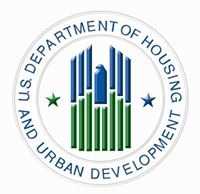RAD changes to offer more options for owners seeking to improve their properties
WASHINGTON, D.C. – June 16, 2015 – (RealEstateRama) — The U.S. Department of Housing and Urban Development (HUD) today published new guidance to help public housing authorities and private landlords of multi-family housing developments seeking to participate in HUD’s Rental Assistance Demonstration (RAD) Program. HUD’s new guidance represents a set of clarifications and changes in response to operating experience since the program launch and stakeholder feedback; and incorporates key changes authorized by Congress, most notably to expand the program’s scope from 60,000 to 185,000 units. Read HUD’s notice.
Key revisions include:
- Increasing the cap on public housing conversions from 60,000 to 185,000 units, representing approximately 15 percent of the public housing stock.
- Expanding the program’s eligibility to include Moderate Rehabilitation Single Room Occupancy (Mod Rehab SRO) properties funded under the McKinney-Vento Homeless Assistance Act. It is estimated that approximately 400 SRO properties (including 14,000 units) will now be eligible to convert to either Project-Based Rental Assistance or Project-Based Vouchers, thereby allowing owners and investors greater opportunity to access debt and equity to make capital improvements.
- Strengthening key rights and protections for residents, including:
- Requiring owners/mangers to notify and consult with residents;
- Giving residents the a right to remain or return to the property;
- Prohibiting re-screening of current residents;
- Providing an option for a tenant-based voucher, if a resident chooses to leave the assisted property following conversion; and
- Continuing the essential rights and protections provided under the public housing program, including funding to support resident organizations.
- Offering Multi-family property owners participating in HUD’s legacy Rent Supplement (Rent Supp) andRental Assistance Payment (RAP)programs to participate fully in the RAD Program. There are approximately 106 properties (11,000 units) receiving direct rental assistance from HUD through the Rent Supp and RAP programs. Previously, units supported through these programs were permitted to convert only to the Project-Based Voucher Program. HUD will now allow owners of these properties to convert to the Project-Based Rental Assistance Program, an option that many of these owners find more attractive because of its familiarity to lenders and investors.
- Strengthening the requirement that PHAs maintain control of any new entity formed as part of a RAD conversion. The PHA must act as the managing general partner or hold a long-term ground lease on the property in order to have a controlling interest. The same affordability and ownership & control requirements must be maintained in the rare event of foreclosure, bankruptcy, or default under the contract. These requirements ensure that the public interest and the needs of tenants are protected in perpetuity.
While the increase in RAD’s statutory cap allows significantly more public housing authorities to participate in this program, HUD anticipates demand to for the program to continue to grow. In establishing a public housing waiting list beyond the current conversion authority of 185,000 units, HUD will prioritize the conversion of public housing units with higher levels of investment and rehabilitation, while continuing to call for the elimination of the cap altogether and for funding for high-need properties in economically challenged areas in the FY ’16 budget. HUD believes this is the best way to protect the public housing assets that are most in need of accessing additional preservation resources.
###
HUD’s mission is to create strong, sustainable, inclusive communities and quality affordable homes for all.
More information about HUD and its programs is available on the Internet
at www.hud.gov and http://espanol.hud.gov.
You can also connect with HUD on social media and follow Secretary Castro on
Twitter and Facebook or sign up for news alerts on HUD’s Email List.
Brian Sullivan
(202) 708-0685











